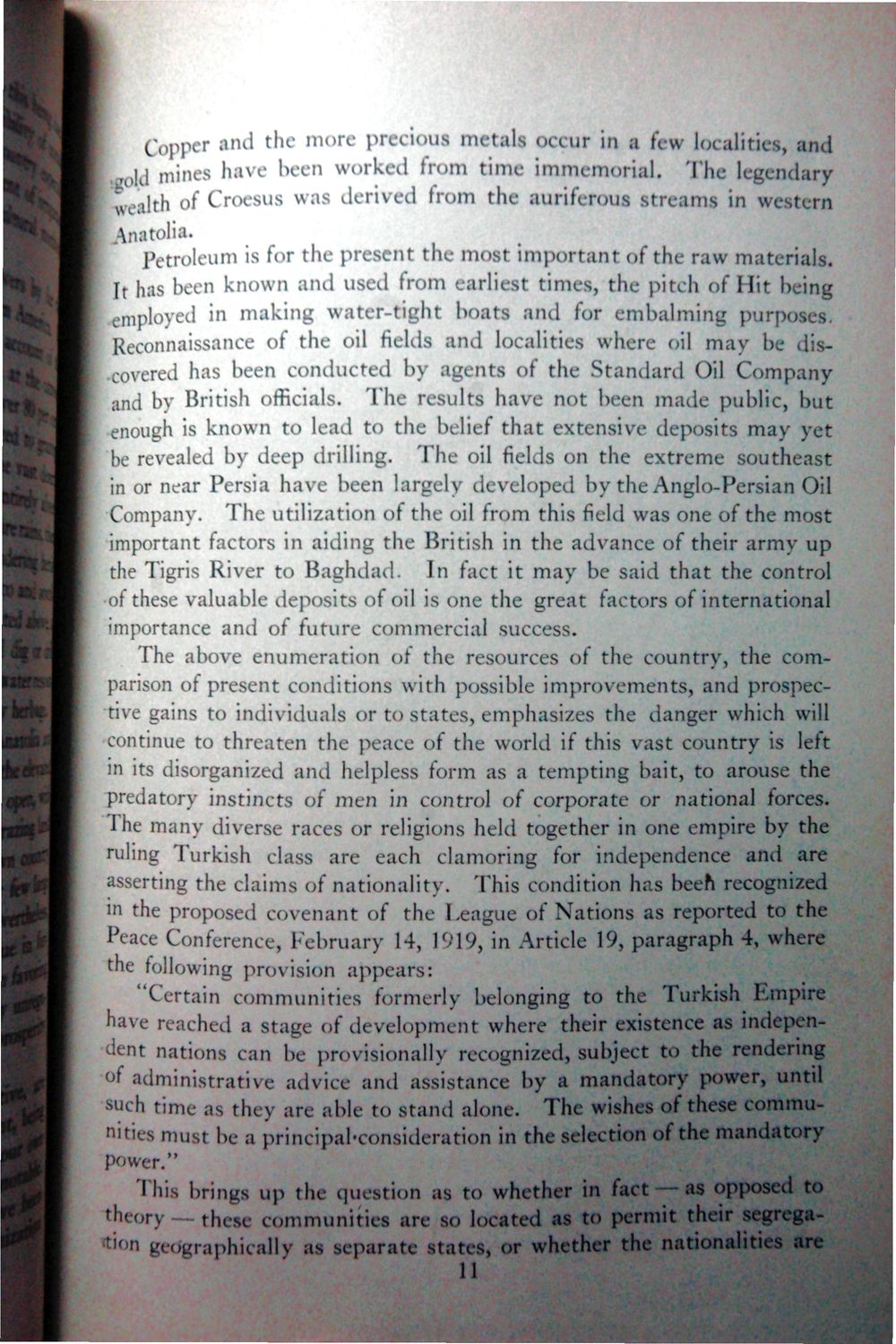| |
| |
Caption: War Publications - WWI Compilation 1923 - Article 23
This is a reduced-resolution page image for fast online browsing.

EXTRACTED TEXT FROM PAGE:
Copper and the more precious metals occur in a few localities, and eold mines have been worked from time immemorial. The legendary wealth of Croesus was derived from the auriferous streams in western Anatolia. Petroleum is for the present the most important of the raw materials. It has been known and used from earliest times, the pitch of Hit being -employed in making water-tight boats and for embalming purposes. Reconnaissance of the oil fields and localities where oil may be discovered has been conducted by agents of the Standard Oil Company and by British officials. The results have not been made public, but enough is known to lead to the belief that extensive deposits may yet be revealed by deep drilling. The oil fields on the extreme southeast in or near Persia have been largeK developed by the Anglo-Persian Oil Company. The utilization of the oil from this field was one of the most important factors in aiding the British in the advance of their army up the Tigris River to Baghdad. In fact it may be said that the control •of these valuable deposits of oil is one the great factors of international importance and of future commercial success. The above enumeration of the resources of the country, the comparison of present conditions with possible improvements, and prospective gains to individuals or to states, emphasizes the danger which will continue to threaten the peace of the world if this vast country is left in its disorganized and helpless form as a tempting bait, to arouse the predatory instincts of men in control of corporate or national forces. I he many diverse races or religions held together in one empire by the ruling Turkish class are each clamoring for independence and are asserting the claims of nationality. This condition has beeh recognized in the proposed covenant of the League of Nations as reported to the Peace Conference, February 14, 1919, in Article 19, paragraph 4, where the following provision appears: Certain communities formerly belonging to the Turkish Empire have reached a stage of development where their existence as independent nations can be provisionally recognized, subject to the rendering of administrative advice and assistance by a mandatory power, until such time as they are able to stand alone. The wishes of these communities must be a principal'Consideration in the selection of the mandatory M power. This brings up the question as to whether in fact — as opposed to theory —these communities are so located as to permit their segrcgagtom-aph 11 <<
| |